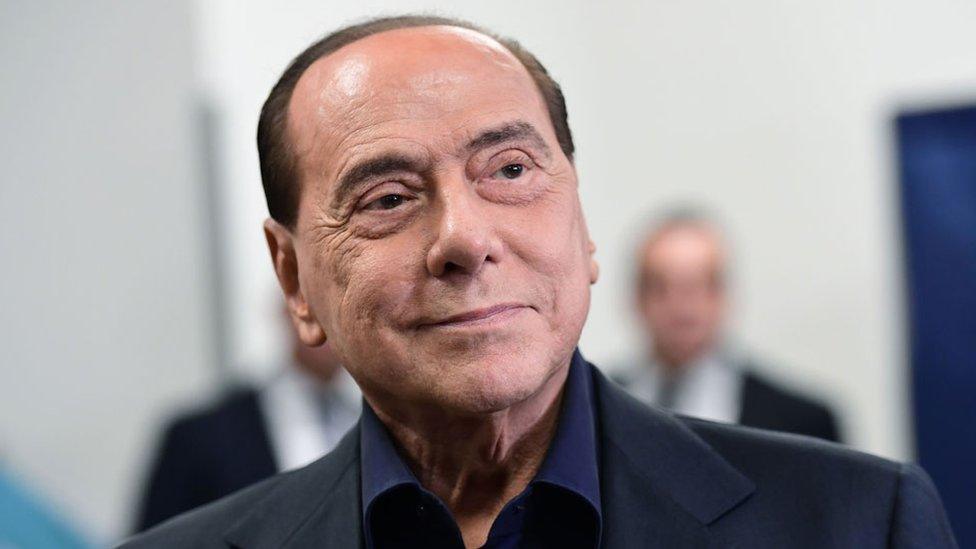Blue dress and new-look women upstage Italy's macho politicians
- Published
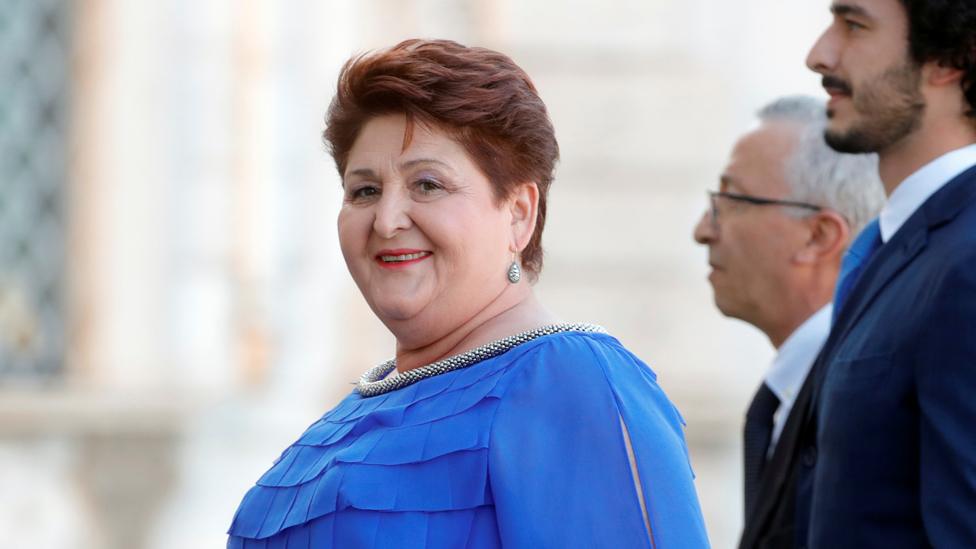
Many Italians defended Agriculture Minister Teresa Bellanova against critics on Twitter
Since the unification of Italy in the late 19th Century, the country has had 58 prime ministers - every one a man.
No woman has come close to leading this country. Female politicians in Italy have often been used either as decoration or as tokens of an equality that doesn't yet exist.
But the new coalition between the populist Five Star Movement and the centre-left Democratic Party (PD) shows signs of a quiet shift. Seven women have been appointed ministers, in contrast to the five who were sworn into the previous populist coalition of Five Star and the far-right League Party.
The new mood was epitomised by Agriculture Minister Teresa Bellanova, a former farm worker and trade unionist who left school at 15. She wore an electric blue dress at the new cabinet's inauguration.
When journalist and ex-politician Daniele Capezzone tweeted a photo of her with the mocking caption "Carnival? Halloween?" he was slapped down by many Italians, indignant at what they saw as sexism and snobbery.
"She was criticised for her electric blue dress," says Emiliana De Blasio, professor of Political Science at Luiss University in Rome. "But this was the first time that I saw the majority of people disagreeing with the analysis, with such superficial analysis against a political woman. So something has changed in the climate, in a month everything has changed in Italy.
"For the first time, some of the more important cabinet positions have been given to women. In the past there have been the same number of women, but not with the same power."
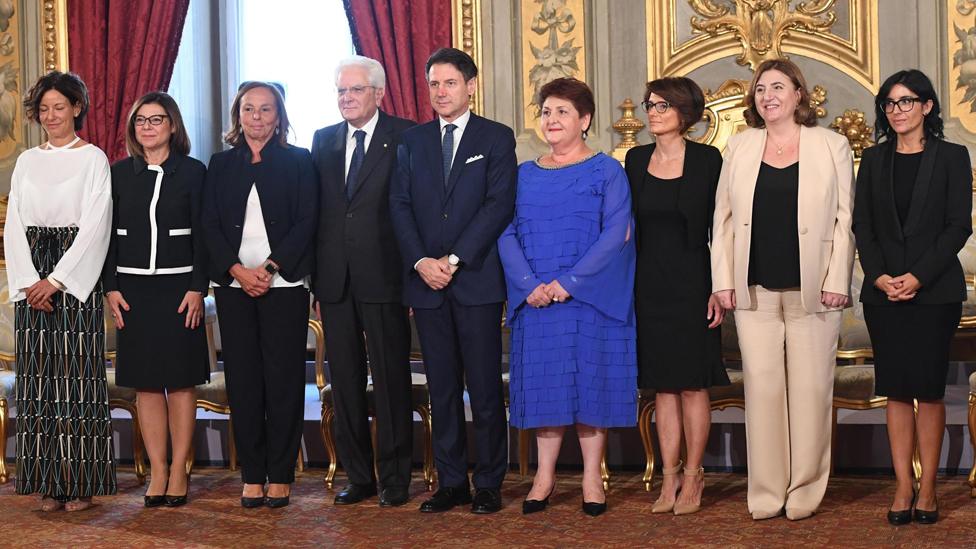
Seven women ministers flank President Sergio Mattarella and PM Giuseppe Conte, L-R: Paola Pisano (technological innovation); Paola De Micheli (transport); Luciana Lamorgese (interior); Teresa Bellanova (agriculture); Elena Bonetti (equal opportunities); Nunzia Catalfo (labour) and Fabiana Dadone (civil service)
Using the hashtag #qualcosadiblu (something blue), Ms Bellanova tweeted, external: "True elegance is respecting one's own mood: yesterday I felt enthusiastic, electric blue with flounces, and that's how I presented myself."
The new line-up includes Luciana Lamorgese, 66, who takes over the interior ministry from the League's leader Matteo Salvini, who has been sent into sudden opposition.
The respective profiles of Ms Lamorgese and Mr Salvini could hardly be more different.
The League leader sometimes posts on social media several times an hour. He devotes huge amounts of time to taking selfies with his supporters.
By contrast, Ms Lamorgese does not have any social media accounts, nor is she known to take selfies.
"She's a very competent woman - very balanced," says Laura Boldrini, a former president of the chamber of deputies who repeatedly clashed with Matteo Salvini. "She is somebody who knows how to do the job. She is experienced. She is the opposite of Salvini."
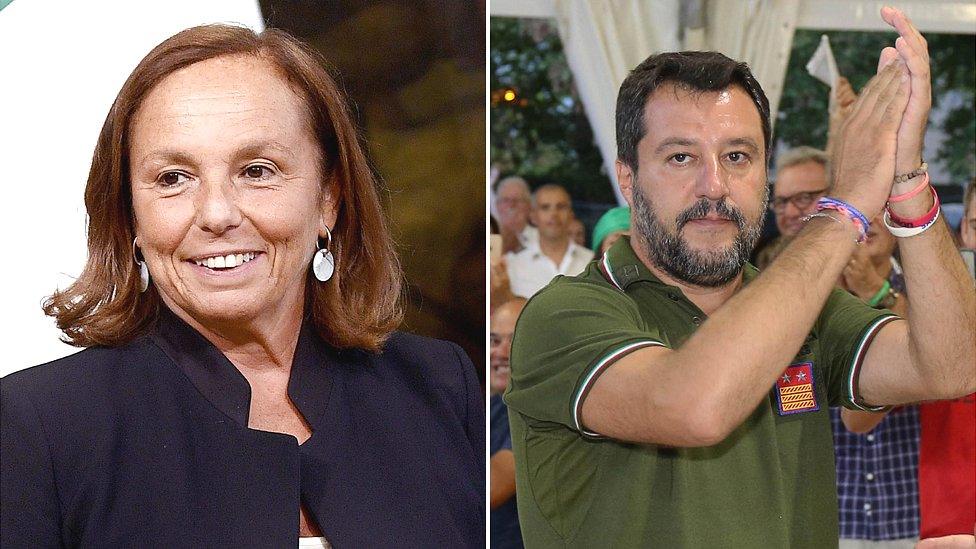
Luciana Lamorgese and Matteo Salvini
Female politicians in Italy are routinely judged on their appearance. Former prime minister Silvio Berlusconi, a billionaire businessman, surrounded himself with women he considered to be attractive.
The Berlusconi era is remembered, among other things, for his so-called "bunga bunga" parties, in which aspiring showgirls were said to perform acts of striptease.
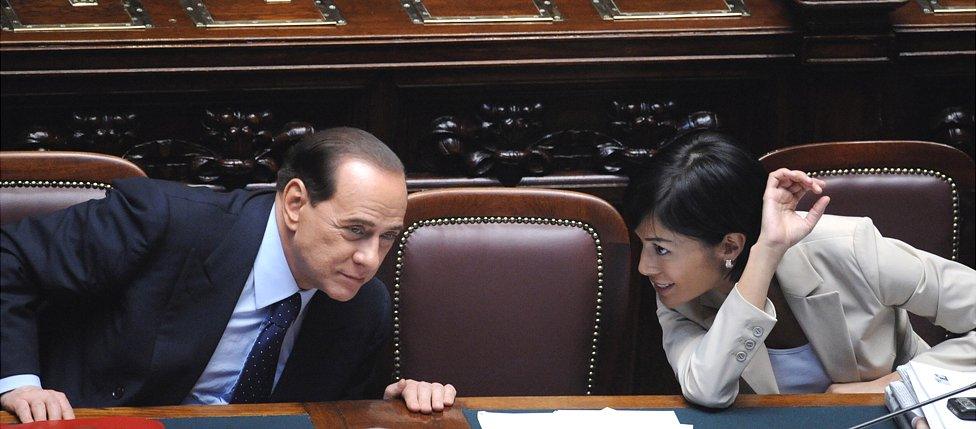
Silvio Berlusconi made Mara Carfagna (R) - ex-showgirl and model - spokeswoman for his Forza Italia party
To his critics, Mr Berlusconi epitomised an age of sexism and objectification. Years later, the women in the new cabinet line-up do not appear to care about getting ahead via their looks.
Teresa Bellanova's blue dress symbolises that change. The critics were drowned out on Twitter by many who were relieved to see such a woman finally represented in cabinet.
So is this a new Italy? It's a question I put to Laura Boldrini - who faced years of attacks from Matteo Salvini.
"In principle with this new government, there should be another way of speaking," she says. "This is something that we really hope is going to happen. Salvini is less powerful, less visible. In opposition he has less ground in which to continue a hate speech campaign. Maybe this season is over. It was like having drops of poison in the water every day. Let's hope this is over."
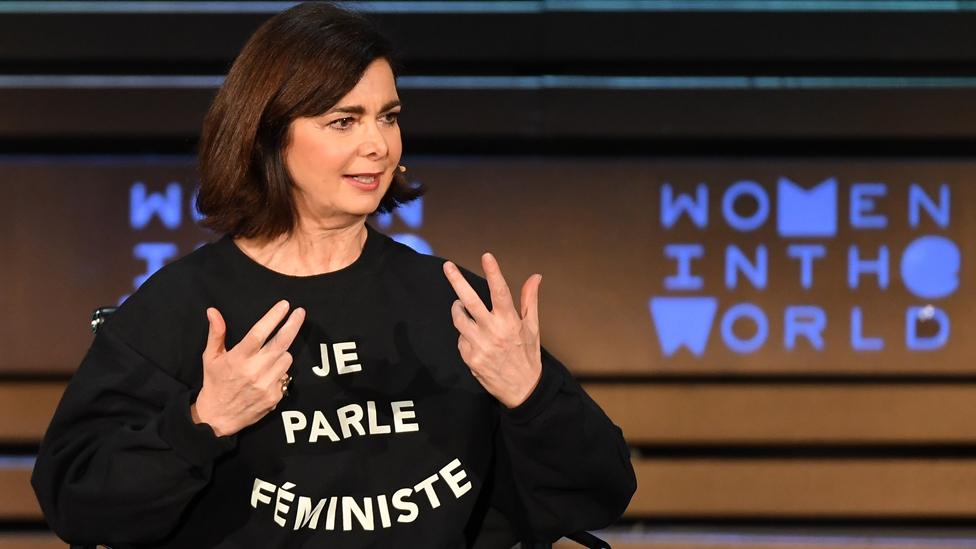
Laura Boldrini is a high-profile campaigner for women's rights
But the final decisions in Italy will continue to be made by men. Women have not yet risen to Italy's highest position. But they're now taking a greater share of power.
It may be worth keeping an eye on the progress of Interior Minister Luciana Lamorgese, as well as others outside government: Chiara Appendino, the Mayor of Turin; and Federica Mogherini, the EU's outgoing foreign affairs chief.
"When will there be a female prime minister in Italy?" I asked Laura Boldrini.
"When? We don't know. I hope very, very soon. It's about time."
- Published6 September 2019
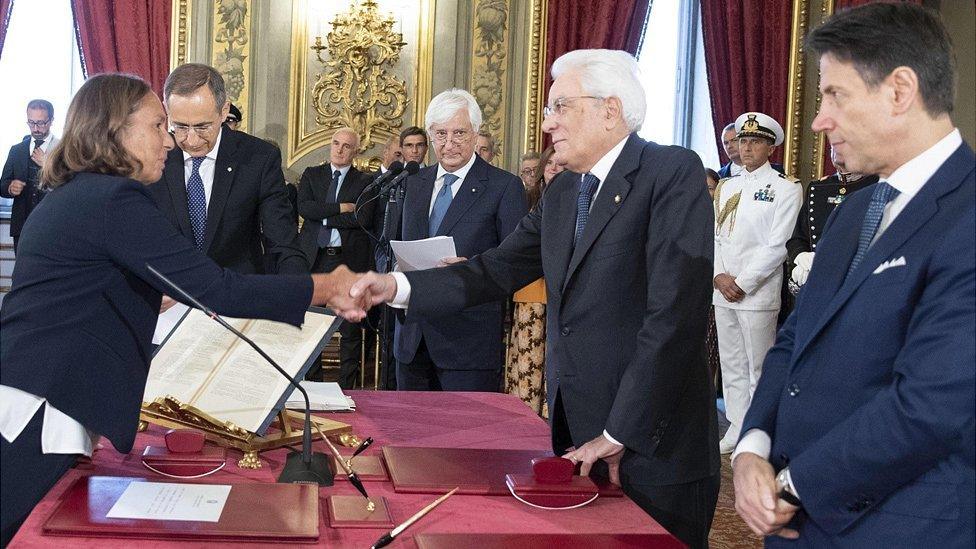
- Published24 September 2019
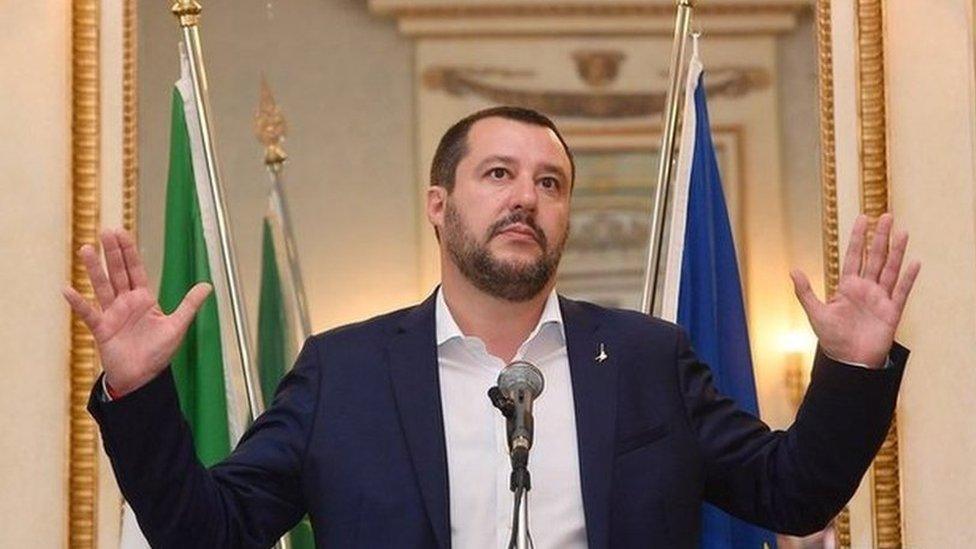
- Published29 May 2019
